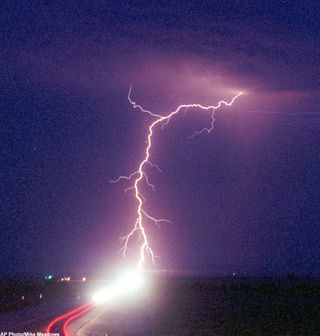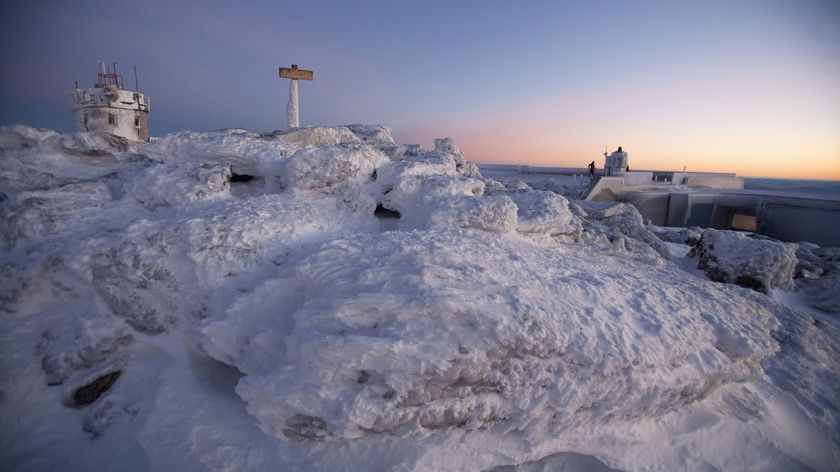Cold Weather Can Damage, Zap Electronic Devices

This article was provided by AccuWeather.com.
Leaving electronic devices inside a vehicle during cold weather may not be a good idea and can cause severe damage.
The cold can reduce their batteries' effectiveness and damage the internal elements that make them work, experts said.
Every electronic device has its own operating guidelines, John Christopher at DriveSavers said.
Apple, for example, said its iPhones, iPads and iPods operate between 32 and 95 degrees, Christopher said. Samsung phones are guaranteed to function between minus 4 and 122 degrees F.
"Low- or high-temperature conditions might temporarily shorten battery life or cause the device to alter its behavior to regulate its temperature," Christopher said.
RELATED: Three Ways Your Body Battles the Cold AccuWeather Winter Weather Center Three Ways to Keep Your Pets Safe During Winter
Sign up for the Live Science daily newsletter now
Get the world’s most fascinating discoveries delivered straight to your inbox.
Leaving the gadgets in the cold overnight slows down electric currents in batteries, releasing their charge more quickly, the Geek Squad at Best Buy said.
It leaves devices vulnerable to condensation, which could lead to permanent damage.
Components inside smartphones, laptops and handheld gaming devices could be permanent damaged, even cracking if it's cold enough, Christopher said.
"Of course, for something like that to happen, your body is more likely to be affected first," he said. "You probably won't be outside trying to text a friend in 4-below weather."
Don't panic if a gadget accidentally falls in the snow, the Geek Squad said.
Removing the battery will prevent it from frying electrical circuits, and it is best to do it inside to keep the seeped water from freezing, they said.
Take out the SIM card, if a cell phone has one, to save all the contact information.
To dry a device, use a clear microfiber cloth or paper towel and put the device in air-tight container with packets of silica gel to absorb the moisture.
Submerging a gadget in a pot or bowl of uncooked rice can also help remove any moisture from it, the Geek Squad said.
Laptop hard drives will freeze from the cold, Christopher said. The non-operating range for a typical laptop hard drive is minus-40 to 158 degrees.
"We recommend that you allow a laptop to warm up to room temperatures before using it," Christopher said.
Backing up data is the best practice, really the only way, that a person can prevent data loss from a frozen or damaged piece of electronics, Christopher said.
© AccuWeather.com. All rights reserved. More from AccuWeather.com.













